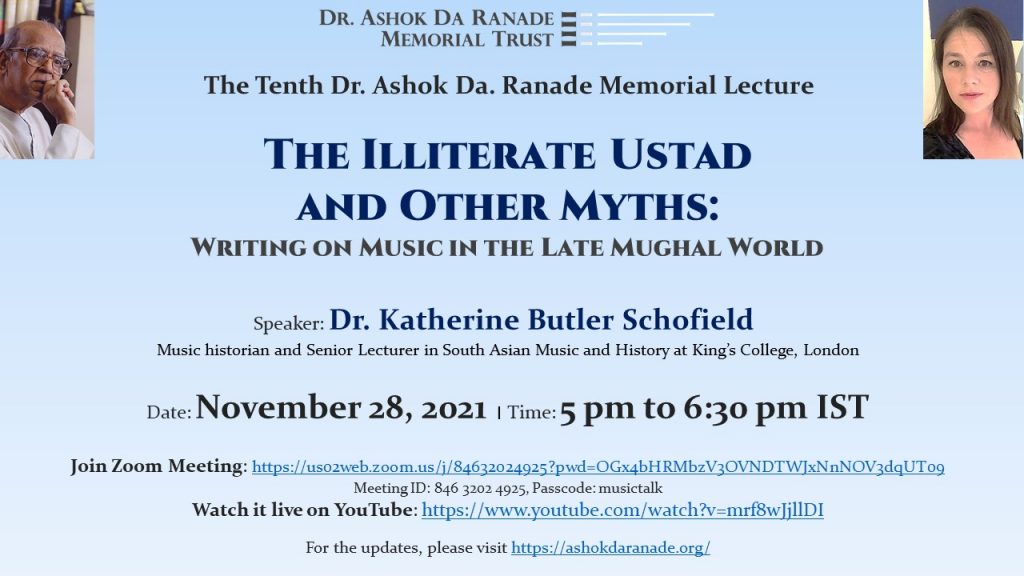
The Tenth Dr Ashok Da Ranade Memorial Lecture
The Illiterate Ustad and Other Myths: Writing on Music in the Late Mughal World )
Date: November 28, 2021
Time: 5 pm to 6.30 pm IST
Meeting ID: 895 1157 6021 Or on YouTube channel:
https://www.youtube.com/channel/UC4R8DWoMoI7CAwX8_LjQHig
About the speaker
About the lecture
One of Dr Ashok Ranade’s major contributions to the field of Indian musicology was his seminal book, On Music and Musicians of Hindoostan. While Dr Ranade was a champion of the intellectual depth and virtuosity of the sina-ba-sina mode of transmission of the guru-shishya-parampara, he also made the fundamentally important point that oral and literate traditions in Indian music have not historically been in opposition to each other, nor have they ever been mutually exclusive.
As if to prove his point, shortly after the death of the protagonist of one of Dr Ranade’s chapters, the great Hindustani singer Ustad Faiyaz Hussain Khan-sahib, the late Professor R C Mehta received a Persian manuscript that had been in the Ustad’s possession. It turned out to be one of several versions of a music treatise written in the first decade of the nineteenth century, in Persian and Brajbhasha, by a hereditary ustad, Khushhal Khan ‘Anup’, whose father Karim Khan had been the special disciple of Firoz Khan Adarang.
What role did this manuscript play in Ustad Faiyaz Khan-sahib’s understanding of his tradition of Hindustani music and musicianship? Did reading it inform his performances? COULD he even read it? Didn’t Bhatkhande tell us the Muslim ustads of Hindustani music were illiterate—ignorant of authoritative theoretical writings on music and therefore susceptible to passively transmitting changes to the tradition they were entrusted with embodying?
In this lecture, I will discuss several writings on music in Persian and Brajbhasha from late Mughal India c.1666–1858 that demonstrate that the illiterate ustad is a myth. Far from being illiterate, many hereditary ustads in the lineages of Tansen and Sadarang right down to the twentieth century were literate in the written discourses of Indian music, and highly conscious of the need to assert their authority over their traditions through writing. The literate ustad changes the way we understand the battle for Hindustani music’s modern soul in the early twentieth century.
– Dr Katherine Butler Schofield
For the updates, please visit https://ashokdaranade.org/
